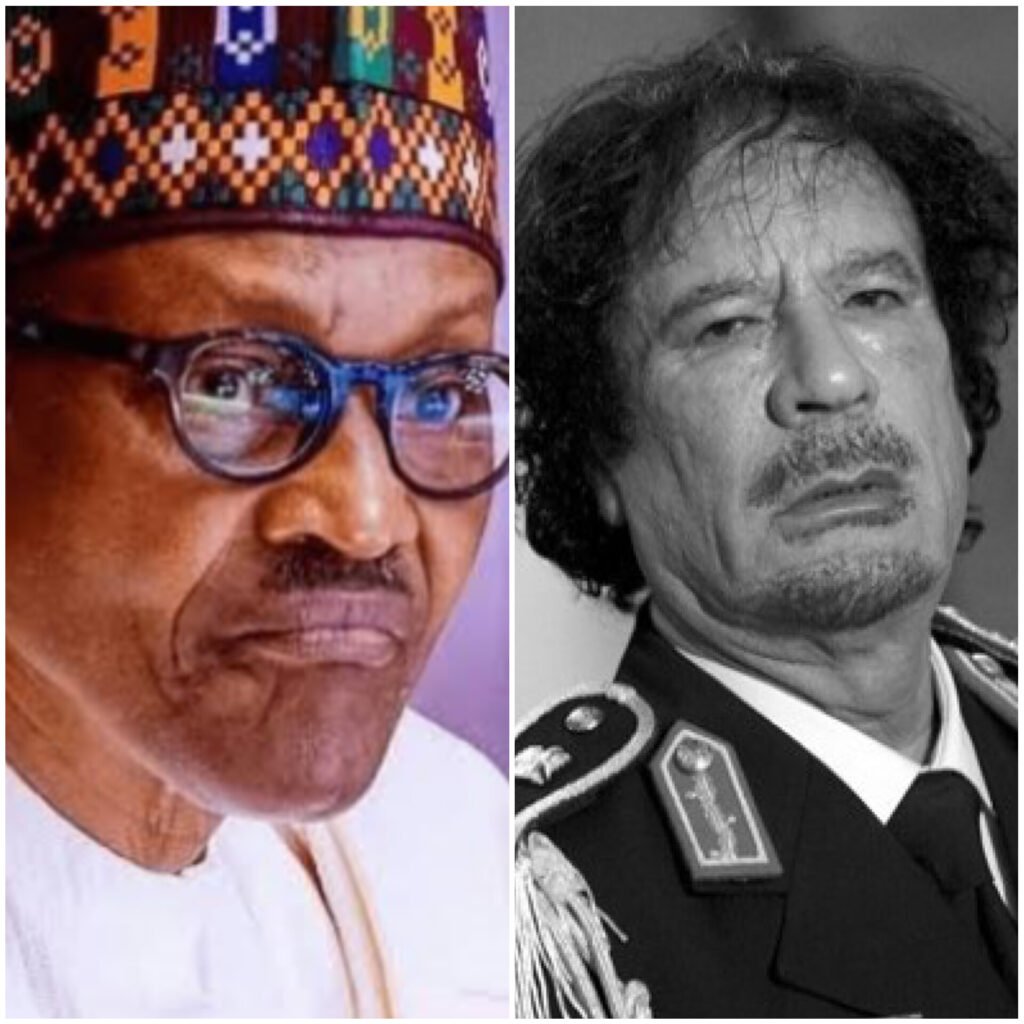
Recently, I listened to Yusuf Datti Baba-Ahmed in an interview with Seun Okinbaloye on Channels TV. What he revealed should trouble every Nigerian who still believes our nation’s tragedy is accidental.
According to Datti, Muhammadu Buhari and the APC struck a secret alliance with Muammar Gaddafi to unleash Tuareg militias from Libya, to sow chaos and ensure Buhari’s victory should Goodluck Jonathan refuse to concede defeat.
The logic, he said, was sinister but strategic. Gaddafi, already sensing his fall, sought an escape route. The deal was simple: if he lost Libya, Buhari would offer him refuge in Nigeria. In return, Gaddafi would supply his private Tuareg mercenaries and fund the campaign with millions of dollars.
Datti claimed that El-Rufai was part of those who designed and executed this plot. He further alleged that Jonathan was aware of the plan—especially when Buhari started beating the drums of violence, declaring that “the blood of baboons and monkeys will be shed if I don’t win.”
Buhari eventually won, but Gaddafi was not spared—he was lynched by the combined forces of the West, led by Obama and France. Initially, the APC government paid the militias to maintain silence, but once Gaddafi was gone and funds dried up, they were abandoned.
Deprived of patronage, the mercenaries turned to kidnapping, banditry, and mass displacement as means of survival. Villages were raided, schools burnt, children abducted, and farmlands seized—all to fund what became a monstrous enterprise: the trade in human misery and illegal mining.
Datti further alleged that the current federal government, through the National Security Adviser, Nuhu Ribadu, is still paying these bandits—a claim once echoed by El-Rufai, who shockingly described the arrangement as a “federal government project.”
The Tuareg fighters were no strangers to blood. They had been Gaddafi’s private army, men hardened by decades of rebellion. They fought in the 1960 Azawad uprising to carve out a homeland in the uranium-rich Sahara between Niger and Libya—a rebellion sponsored and armed by Gaddafi himself.
When Libya collapsed in 2011 and Gaddafi met his brutal end, these men—trained killers and dreamers of conquest—turned their guns southward. They regrouped in the Sahel, between Mali, Niger, and Burkina Faso, under a new banner: Ansar Dine. What began as a rebellion for territory soon morphed into an Islamic jihadist war for power and domination.
Nigeria’s war on terror, therefore, is not against shadows. We are fighting the very forces our political elites once invited to dinner. These are not phantoms—they are real, trained, and deadly.
The APC, by Datti’s account, is a government born of a dark covenant—a pact sealed in deceit and watered with the blood of innocents. The soul of that covenant is Nigeria itself, and the price has been unbearable: thousands dead, millions displaced, a nation bleeding without comfort.
Unless this unholy alliance is broken and a new government untainted by the greed and guilt of the past is enthroned, Nigeria risks becoming the next Iraq.
With Mali, Niger, and Burkina Faso pushing back the Tuareg-Ansar Dine insurgents, the displaced fighters will inevitably drift toward Nigeria—where the government is weaker, the land richer, and collaborators plentiful. And when they do, the cycle of blood may begin again.
Nigeria stands today between her dark past and a darker future. The question is simple but urgent: How long shall a nation survive when its leaders dine with darkness?
Rev. Fr. Augustine Ikenna Anwuchie is a Catholic missionary priest based in Nigeria Republic
![]()


